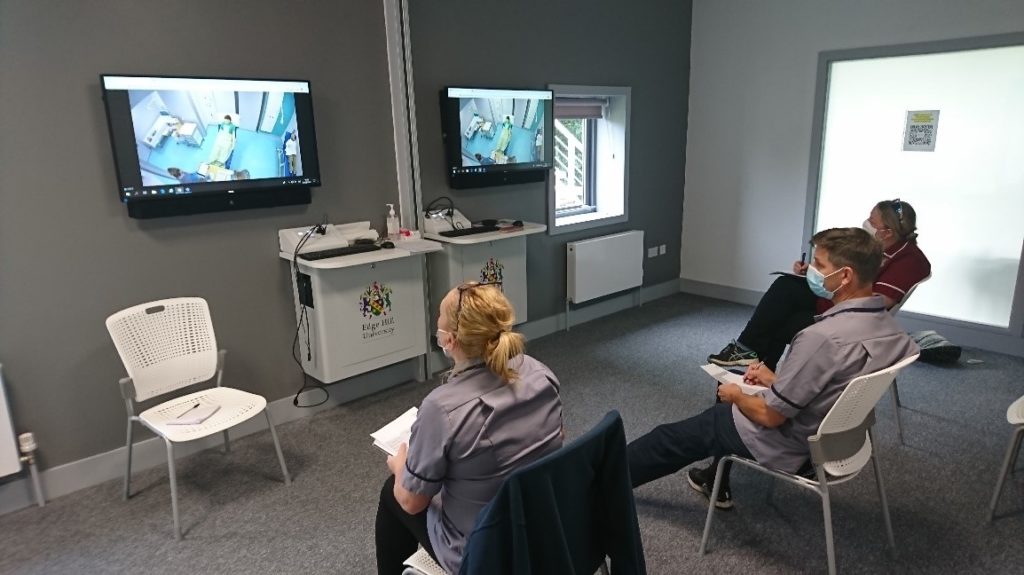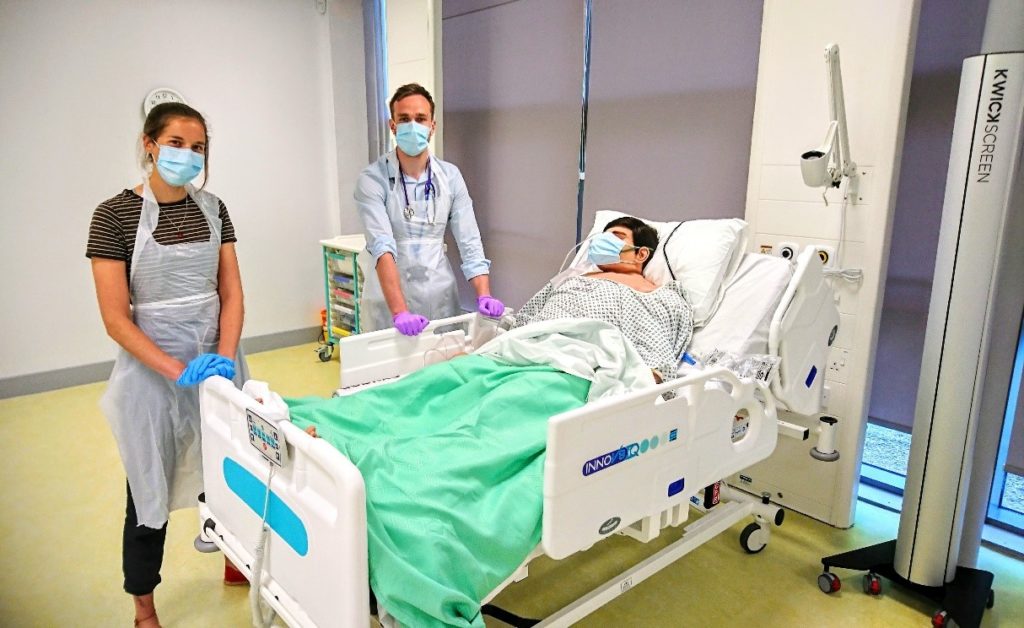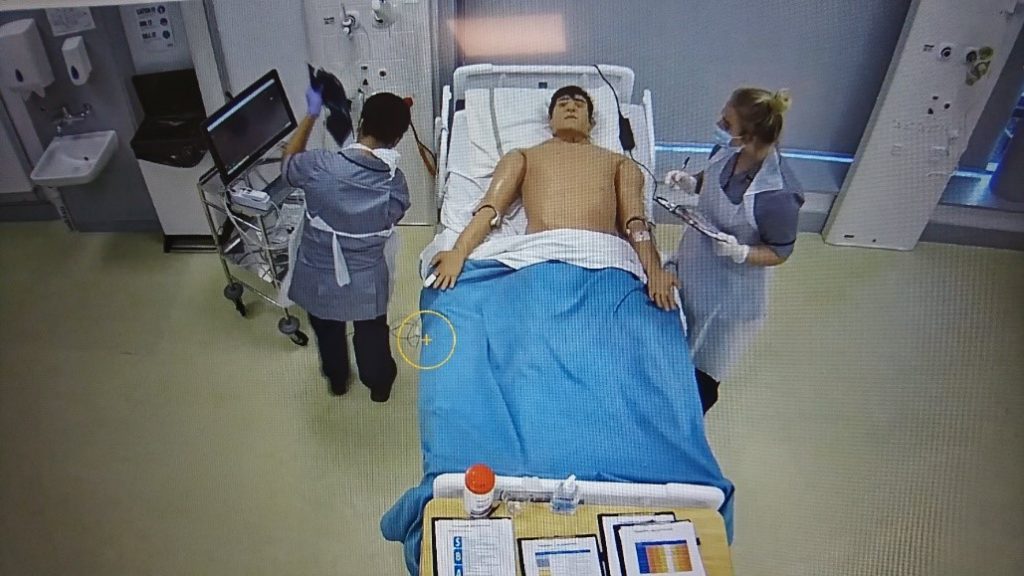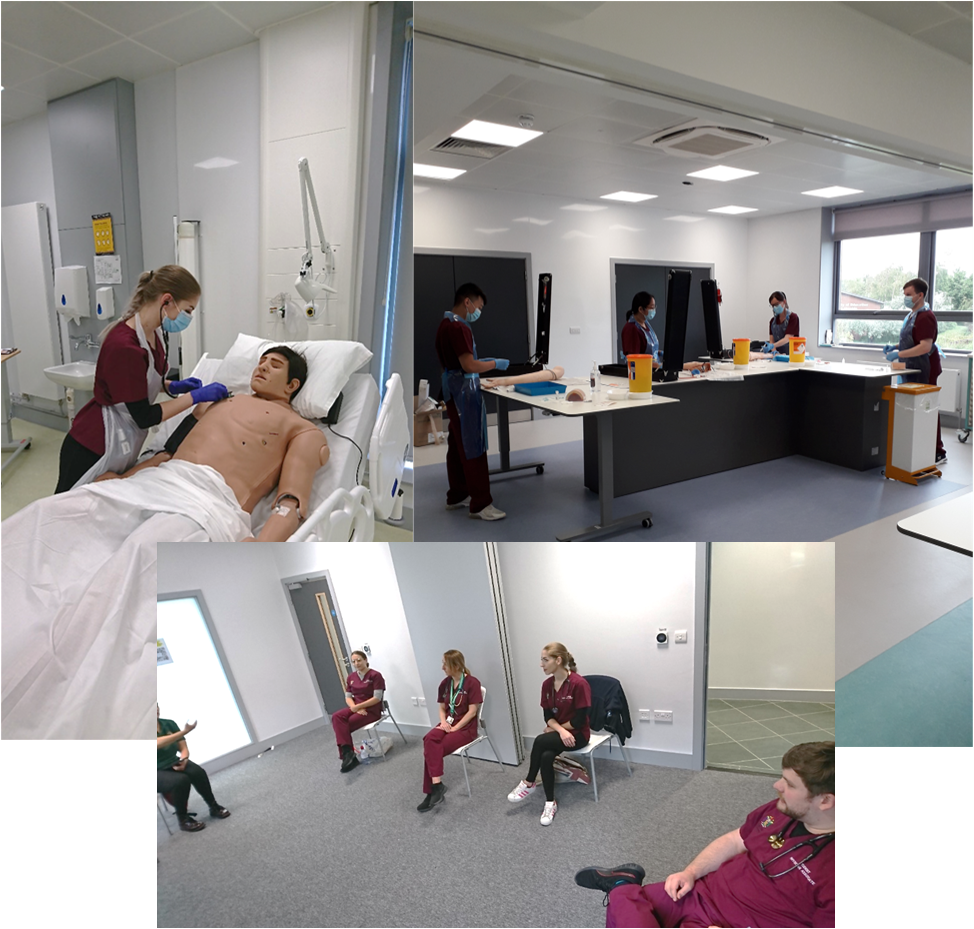Our Simulation and Clinical Skills Facilitator, Agnieszka Sumera, talks about how her role has adapted in the current climate.
I have been experiencing a lot of challenges and opportunities at the same time during the pandemic.
Due to this new situation, I can no longer work in the way I used to before the pandemic
This new situation meant that I have had to adapt to new ways of working.
I continued to hold meetings where we planned future simulation sessions for students returning. I also delivered virtual development sessions for the staff members with an aim to carry on with my objectives to work on improving the standards of simulation at our institution.

Several measures were put in place to prepare the Clinical Skills and Simulation Centre. Students and staff are sent guidance and instructions before they attend simulation sessions. Session scheduling is more complex than usual too with a restricted number of students allowed at the centre. We run more simulation days with fewer people attending.
We were working very hard to make our Centre safe to be used again, and we did it!
On 28th April, we brought in the first NHS staff to engage with simulation scenarios based on COVID-19.
Scenarios were based on infection control, symptoms recognition, leadership, patient transfer, teamwork, communication and decision-making. F1 and F2 doctors improved on the systems and development of new standard operating procedures and policies needed to respond to the COVID-19 crisis.

I learned a lot from aspects of the crisis experience which helped me to develop plans on how to use simulation to prepare organisations and healthcare students to respond to the unexpected and extraordinary situation in the future.


Simulation-based education proves to be exceptionally useful at the time like this. Through the use of our facilities, we can continue to provide high-quality and safe education, as well as offer some help to the new or returning NHS staff.
Agnieszka Sumera
Simulation and Clinical Skills Facilitator
